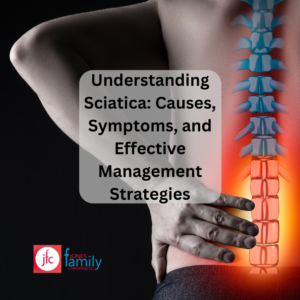Podcast: Play in new window | Download
There are eight B-vitamins that benefits overall health, including keeping your nerves healthy. But three of these vitamins – Thiamine (B1), Pyridoxine (B6), and Cobalamin (B12) are mainly known to support nervous system function.
Continue reading to find out how these three B-complex vitamins help support your nervous system and keep it in tip-top shape.
Thiamine (B1)
Vitamin B1 has a huge benefit to your central nervous system (CNS). This vitamin aids the synthesis of acetylcholine, which is one of the most abundant neurotransmitters in your CNS. This chemical helps to relay messages from your brain to your body muscles, thereby influencing movement and behavior.
Acetylcholine also helps memory and cognitive function. More so, it plays a role in regulation of hormones, learning, sleep cycles, and pain sensation.
Now, imagine if your body is not producing enough of acetylcholine because you’re having vitamin B1 deficiency. You’ll not only experience fatigue, but you’ll suffer poor short-term memory and confusion. Your feet and hands may become numb and your movement hampered.
So ensure you’re getting enough of vitamin B1 in your diet. Some thiamine-rich foods you can include in your diet include beans, nuts and seeds, beef, yeast, liver, oranges, eggs, pork, peas, legumes, and oranges.
Pyridoxine (B6)
While thiamine is essential for the synthesis of acetylcholine, pyridoxine is needed in the synthesis of other neurotransmitters like norepinephrine and serotonin.
Norepinephrine is the stress hormone helpful in triggering a fight-or-flight response. This neurotransmitter helps increase the amount of oxygen in your brain, helping you to think and make decisions faster.
Serotonin is an import neurotransmitter responsible for regulating your appetite, mood, and sexual desire. It also helps to enhance your memory and maintain your sleep cycle.
Vitamin B6 also plays an important role in myelin formation – the insulating sheath around your nerves. This helps in quick and efficient transmission of electrical impulses along your nerves.
When you’re deficient in vitamin B6, you tend to feel more tired, irritable, nervous, and depression. This vitamin deficiency is also linked with conditions such as neuritis, neuralgia, and carpal tunnel syndrome.
So it is important to add pyridoxine-rich foods to your diet. Some good options including meat, legumes, bananas, avocados, fish, tofu, soybean, and potatoes.
Cobalamin (B12)
Both vitamin B6 and B12 are needed for maintaining your myelin. Cobalamin helps in the synthesis of myelin that protects the nerves.
If myelin becomes damaged, it can lead to dysfunctional nerves, which leads to problems such as peripheral neuropathy.
Pregnant women who do not eat foods rich in cobalamin puts their babies at risk of nervous system disorders like seizures, brain atrophy, microencephaly, and even blindness.
Some good food options that are rich in vitamin B12 include read meat, fish, poultry, eggs, lamb, liver, fortified yeast products, and milk.
Looking at these benefits of the B-complex vitamins for your nervous health, it is important that you get enough of these vitamins from your diet or take supplements (as approved by your doctor).
If you’re going to load up on B vitamin supplements, ensure you choose options with optimum combination of the B vitamins to prevent running into deficiency in any form.
You can consult Dr. Jason Jones at our chiropractic office in Elizabeth City, NC, to learn more about how vitamins support your nervous system and other bodily functions.




